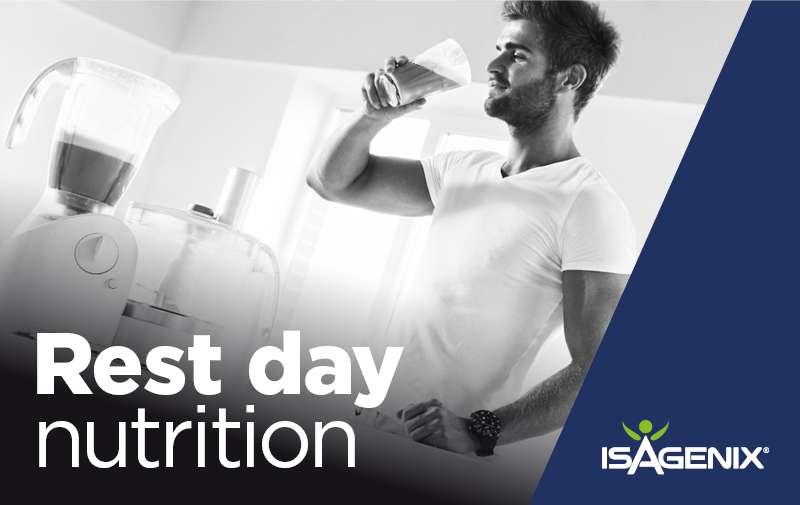Good Nutrition on Your Rest Days
January 31, 2018,
Elaina Bird

Rest days, or days off from exercise, are a chance for your muscles and tendons to recover from physical training, and provide a refreshing mental break. Many athletes report feeling more motivated and energised after rest days, so it’s important to include them as part of your routine.
But how should you structure nutrition on your rest day? Intuitively it might make sense to decrease total energy intake because you’re performing less activity and therefore expending less energy. However, the reality is that you should consume a similar diet to your training days because of how the process of recovery works.
Days after your workout earlier in the week, your body is likely to still be recovering from your training (1,2) for this reason, it’s important to continue to get sufficient protein, carbohydrates and fats throughout rest days (1, 2).
Exercise scientists have found that your body can have an increased demand for protein days after exercise. One study showed that after intense weight training, muscle protein synthesis can be increased by a third for up to 48 hours (2), and, therefore, keeping protein intake on rest days comparable to your usual intake of training days can allow for better recovery.
Avoid Decreasing Carbs and Fat Calories
It’s a common mistake for athletes to try to lower their carbohydrate and fat intake on a rest day. Even while at rest, your body will still be restocking carbohydrates and fats in the form of glycogen and intramuscular triglycerides, so make sure you’re consuming enough carbohydrates and fats.
During your next bout of intense exercise, the extra glycogen and intramuscular fat stored on your rest day could help to provide fuel for your body. Moreover, you need calories to refuel muscles that have an increased affinity for carbohydrate uptake following exercise (3). Since most people who exercise are in a constant state of recovery, keeping intakes of carbohydrates and fats similar on days off will help to maximise recovery.
In a systematic review of 61 published studies, 82% found that performance is significantly increased when carbohydrates are used to replenish muscle glycogen during rest periods (3).
In summary, if intakes of protein, carbohydrates and fats are limited on rest days, ultimately you’re restricting your calorie and nutrient intake, and run the risk of limiting your performance in subsequent sessions. Good nutrition is essential to fuel your workout and your recovery periods. To get the most out of your rest days, follow your usual system to allow your muscle to refuel ready for your next session – your body will put these nutrients to good use!
References
- Rasmussen BB, Tipton KD, Miller SL, Wolf SE, & Wolfe RR. An oral essential amino acid-carbohydrate supplement enhances muscle protein anabolism after resistance exercise.J Appl Physiol. 2000 Feb; 88(2):386-92.
- Phillips SM, Tipton KD, Aarsland A, Wolf SE & Wolfe RR. Mixed muscle protein synthesis and breakdown after resistance exercise in humans.Am J Physiol. 1997 Jul; 273(1 Pt 1):E99-107.
- Kimber NE, Heigenhauser GJ, Spriet LL & Dyck DJ. Skeletal muscle fat and carbohydrate metabolism during recovery from glycogen-depleting exercise in humans.J Physiol. 2003 May 1; 548(Pt 3):919-27.




